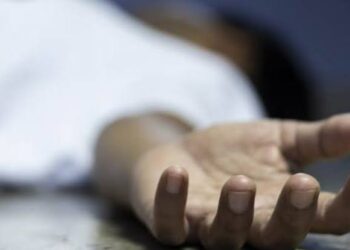Abdullahi M. Gulloma
In the past, President Muhammadu Buhari had talked severally about his desire to bring to an end the menace of the Boko Haram and rebuild the ravaged North-eastern part of the country.
But, this week, the President matched his desire with action when he inaugurated the Presidential Committee on North-east Initiative (PCNI) and appointed no other person than a man of proven integrity, outstanding patriotism and dedication, retired Lieutenant-General Theophilus Yakubu Danjuma, to head the committee.
The committee will be the apex coordinating body for all interventions in the region, including those by the public, private, national and international development partners. The committee is domiciled in the Presidency and is charged with responsibility for developing the strategy and implementation framework for rebuilding the North-east Region.
Speaking at the inauguration ceremony, which was held at the State House in Abuja, the President said the committee was inaugurated to help the federal government restore normalcy and stability to the North-eastern part of our country.
He said the devastation of human lives and means of livelihoods by the Boko Haram insurgents are severe, stressing that an estimated 20,000 persons were killed, 2.4 million others displaced, and billions of Naira worth of personal and public assets destroyed.
The President said many national and international humanitarian intervention organisations have worked to provide short-term emergency assistance and relief to the victims of the violence and Internally Displaced Persons (IDPs) in and outside the North-east region.
“However, there remains a need for better coordination of these efforts, particularly the humanitarian resettlement and reconstruction of the region,” Buhari said. “Fortunately, the worst of the insurgency is behind us. This, we owe, principally, to the valiant efforts of our military whose gallant efforts have significantly degraded the insurgency. With these successes, many displaced persons are willing and ready to return home to pick up their lives and move forward. However, and sadly so, many have nothing to return to. They have lost everything to the insurgency,” he said.
Therefore, if having the committee in place now is important, equally so is the appointment of the chairman, a serious-minded person, to resettle people and rebuild the North-east.
After almost a decade of a reign of violence in the area, virtually all public and private institutions like schools, hospitals, markets, police stations, local government secretariat buildings, roads, bridges, culverts and even electricity poles supplying electricity were destroyed.
The worst hit state is Borno, where even privately owned infrastructure like palaces of traditional rulers, mosques, churches, etc., were destroyed by the insurgents. So bad was the situation that at a point, the state government had to halt academic activities in public and private primary and secondary schools in the state capital, and sent students back home not only for their safety, but also to accommodate families displaced by the insurgents from different parts of the state.
Now that the situation seems to have largely returned to normal, as the President rightly said but, more importantly, stressed by Danjuma, those who made financial pledges to rebuild the north-east should act as reputable organisations and individuals and redeem their pledge.
Danjuma said that of the N50 billion pledged for reconstruction, only N27 billion has been realised. No doubt, it is only by redeeming their pledge that those who made the solemn promise can tell Boko Haram insurgents that they have not achieved their wicked objectives.
It goes without saying that human development should not be neglected in the area. Thankfully, as Danjuma said: “The resilience shown by the people of the North-east gives hope that the task of rebuilding the region is one in which everyone has a role to play, starting from the people, the government and other critical actors and, indeed, the whole nation.”
Governments and other stakeholders involved in rebuilding the region should pay great attention to the issue of education in order to help, especially children, realise their dreams of living a decent life.
Deradicalising children and making them shun violence, and the elderly people to realise there potentials after the war, in my view, represents the best way to defeat the Boko Haram insurgents.
But this objective can only be achieved when wealthy individuals realise the need to join the crusade to rebuild the North-east, mainly through establishment of industries and other sources of employment in the hitherto vastly neglected region.
It is regrettable that there is a progressive decline in human welfare, a situation largely responsible for the emergence of Boko Haram. While Nigerian elite bleeds dry their country, their counterparts in other climes, especially Indonesia, Brazil and South Africa make the critical choice of investing their resources at home.
In this Peary of the globe, adequate plans were not put in place to provide basic facilities and job for the increasing population, making it clear that poverty is a major contributing factor for the socio-economic upheavals in many parts of the country.
It is, therefore, hoped that the Danjuma-led committee will harness good chunk of resources to frontally confront and address development challenges of the North-east and stem the tide of unguided radicalism there.



